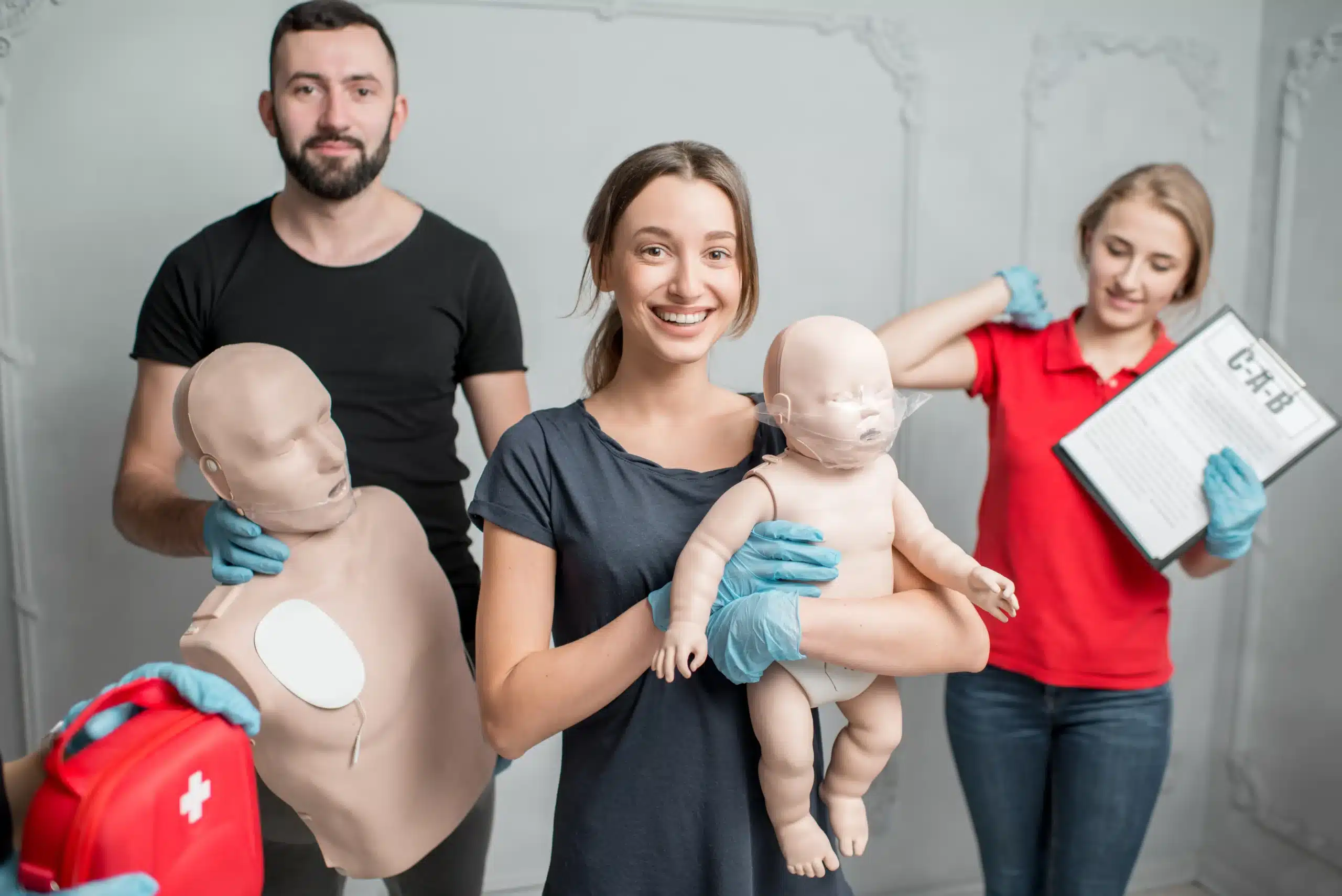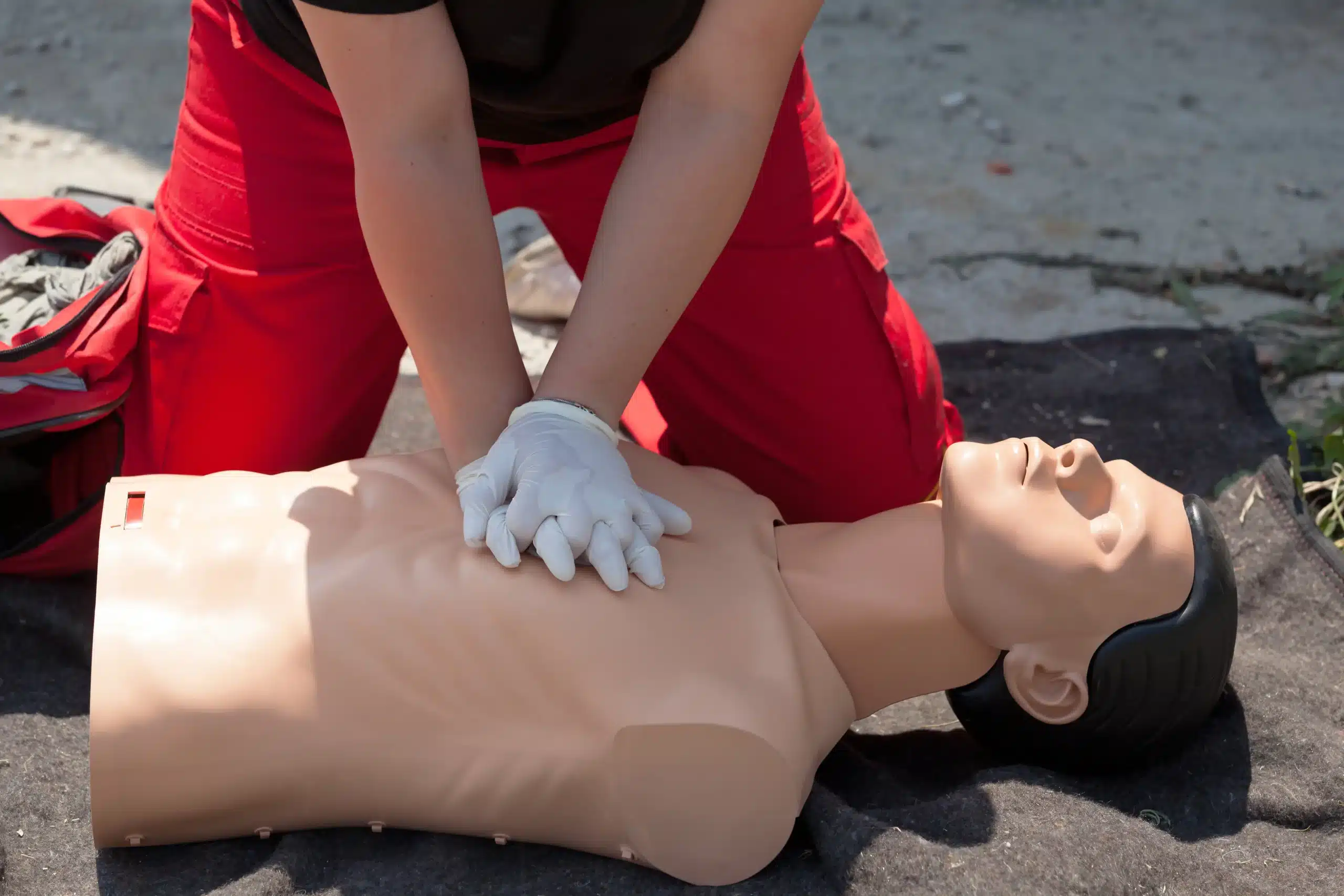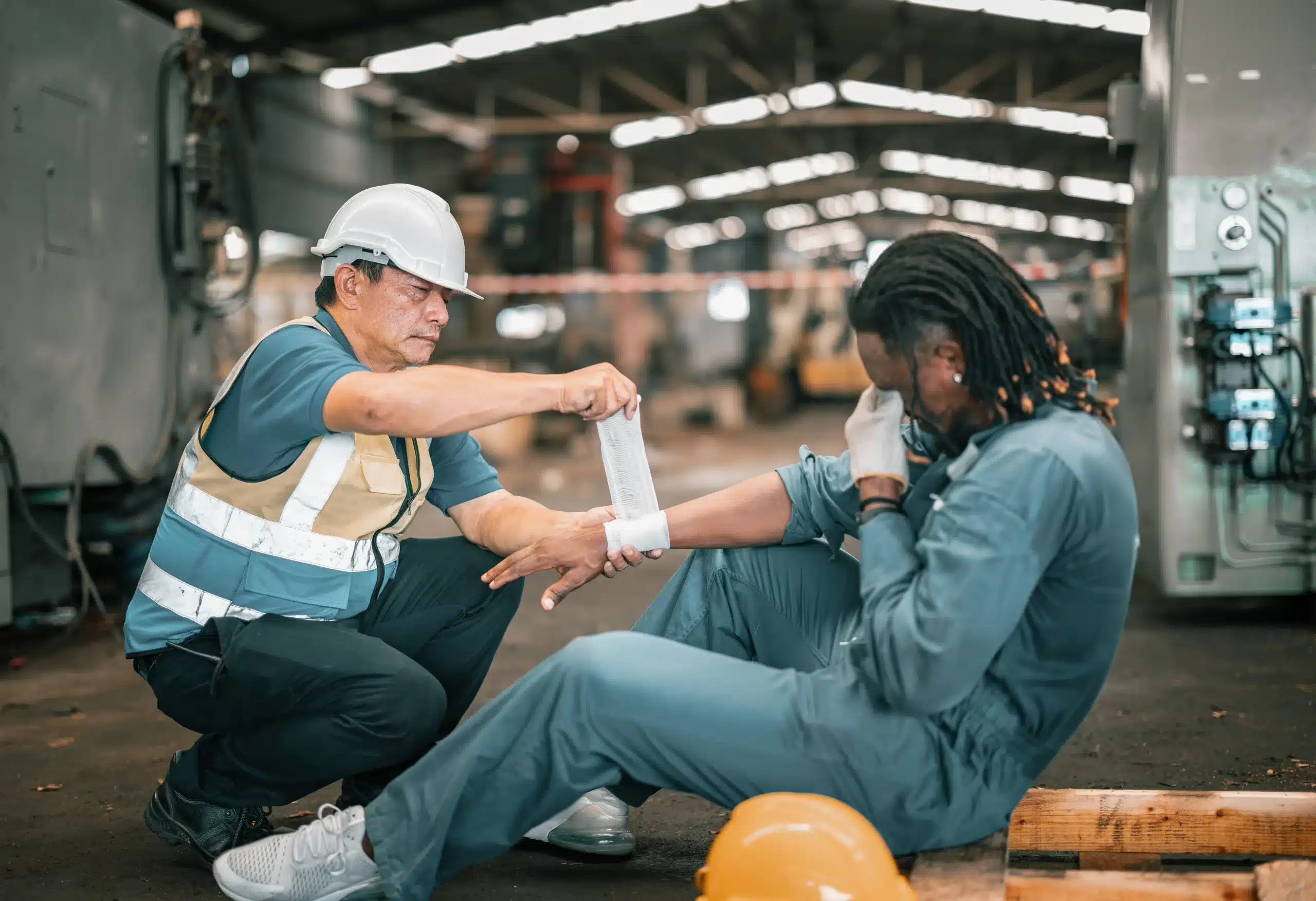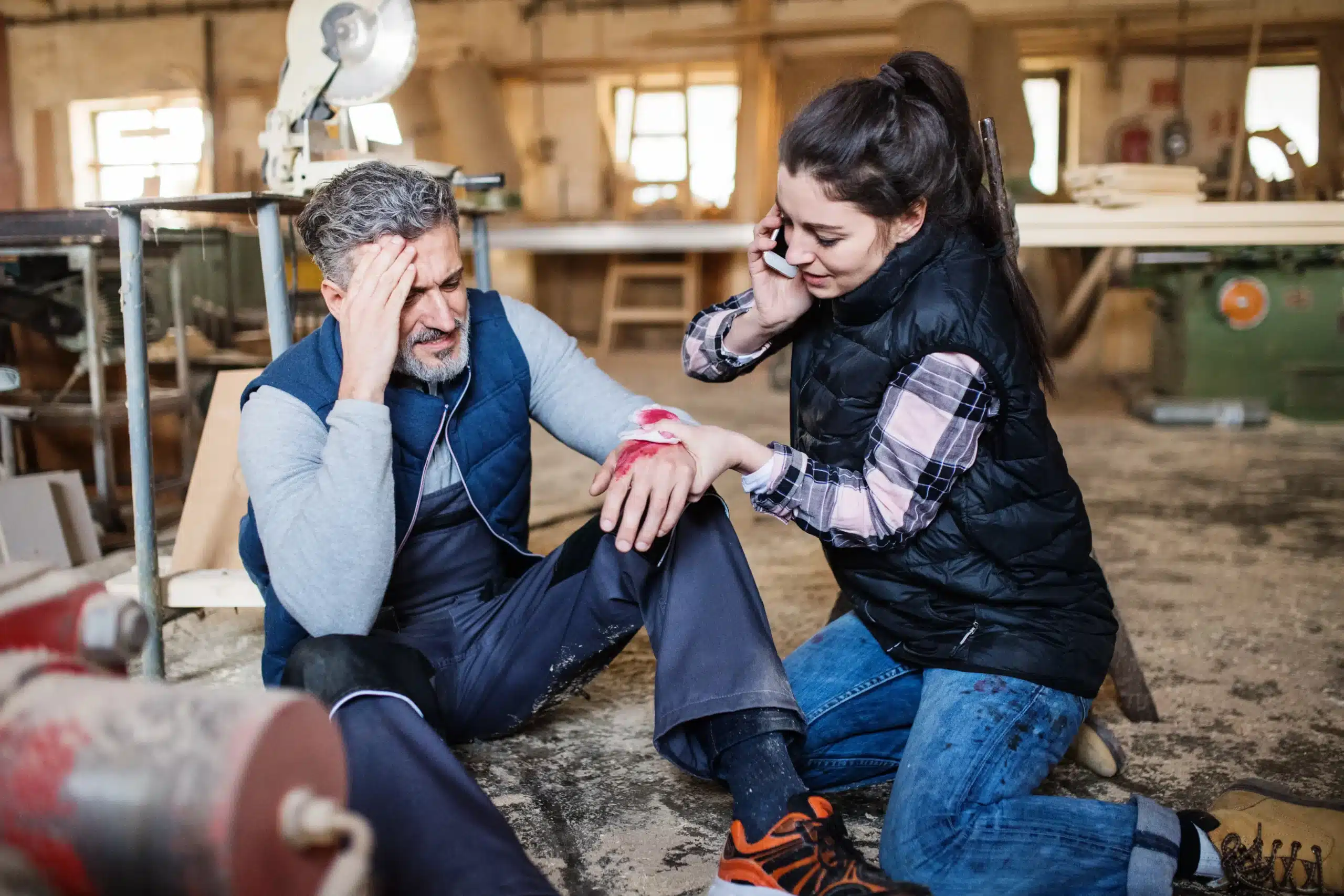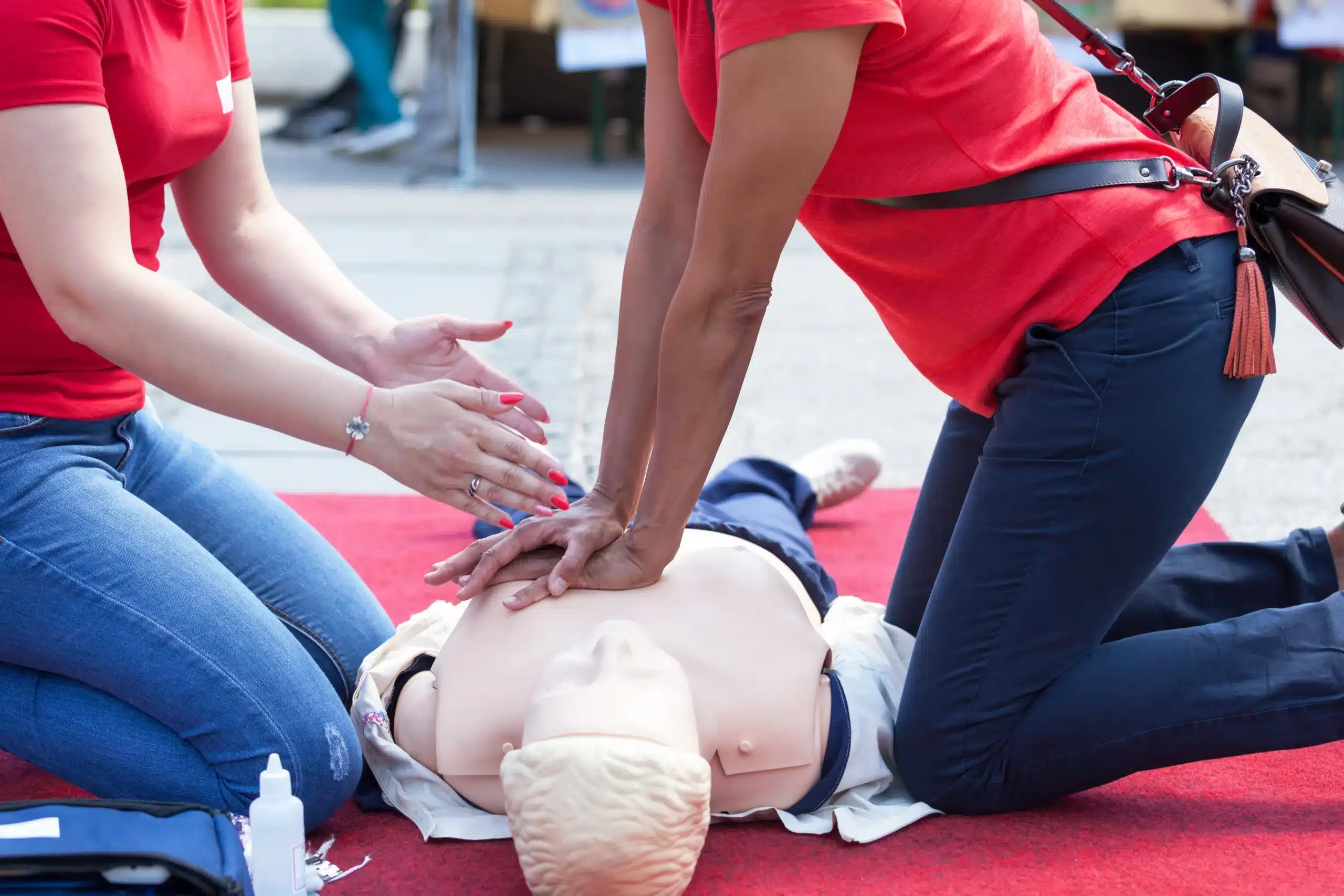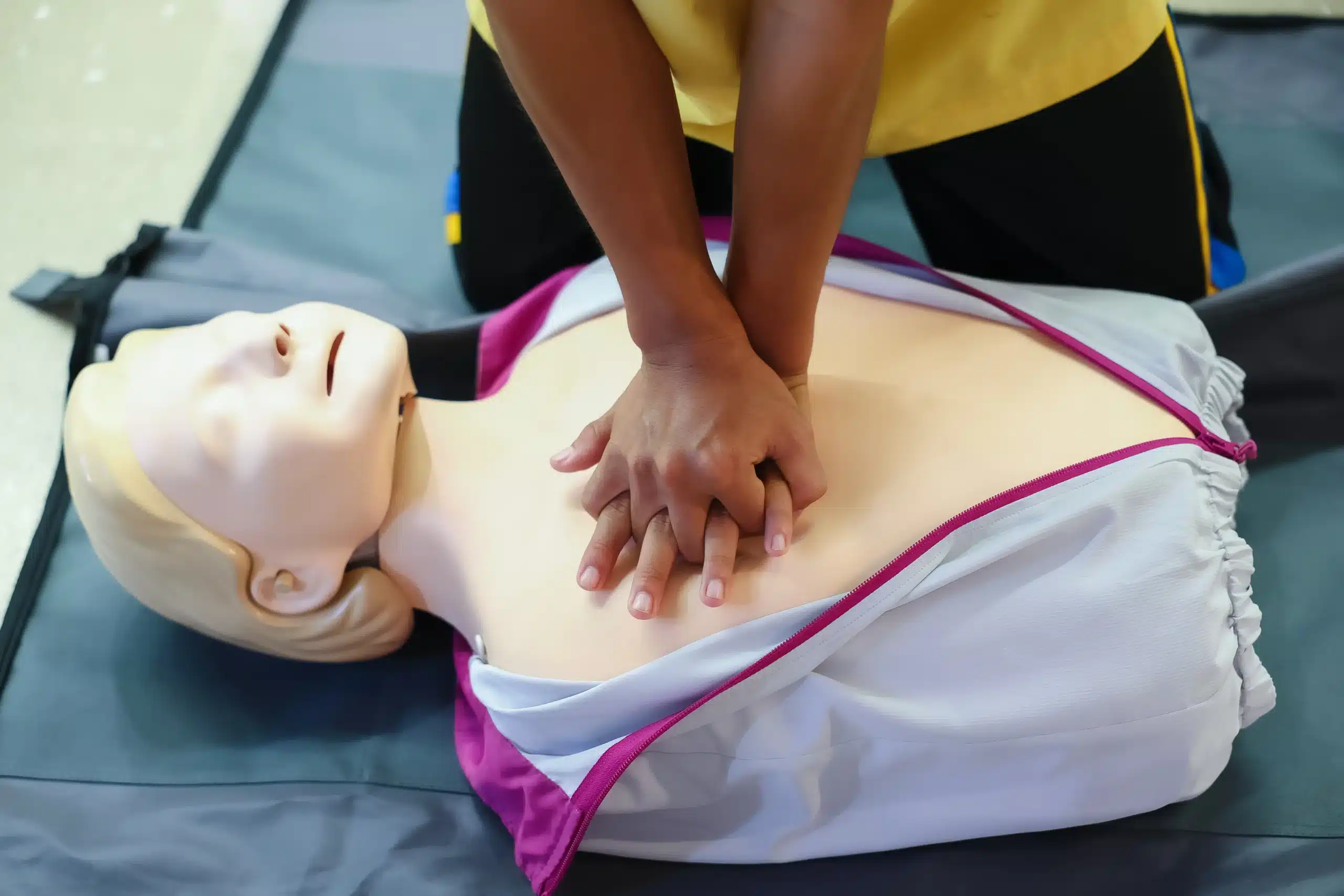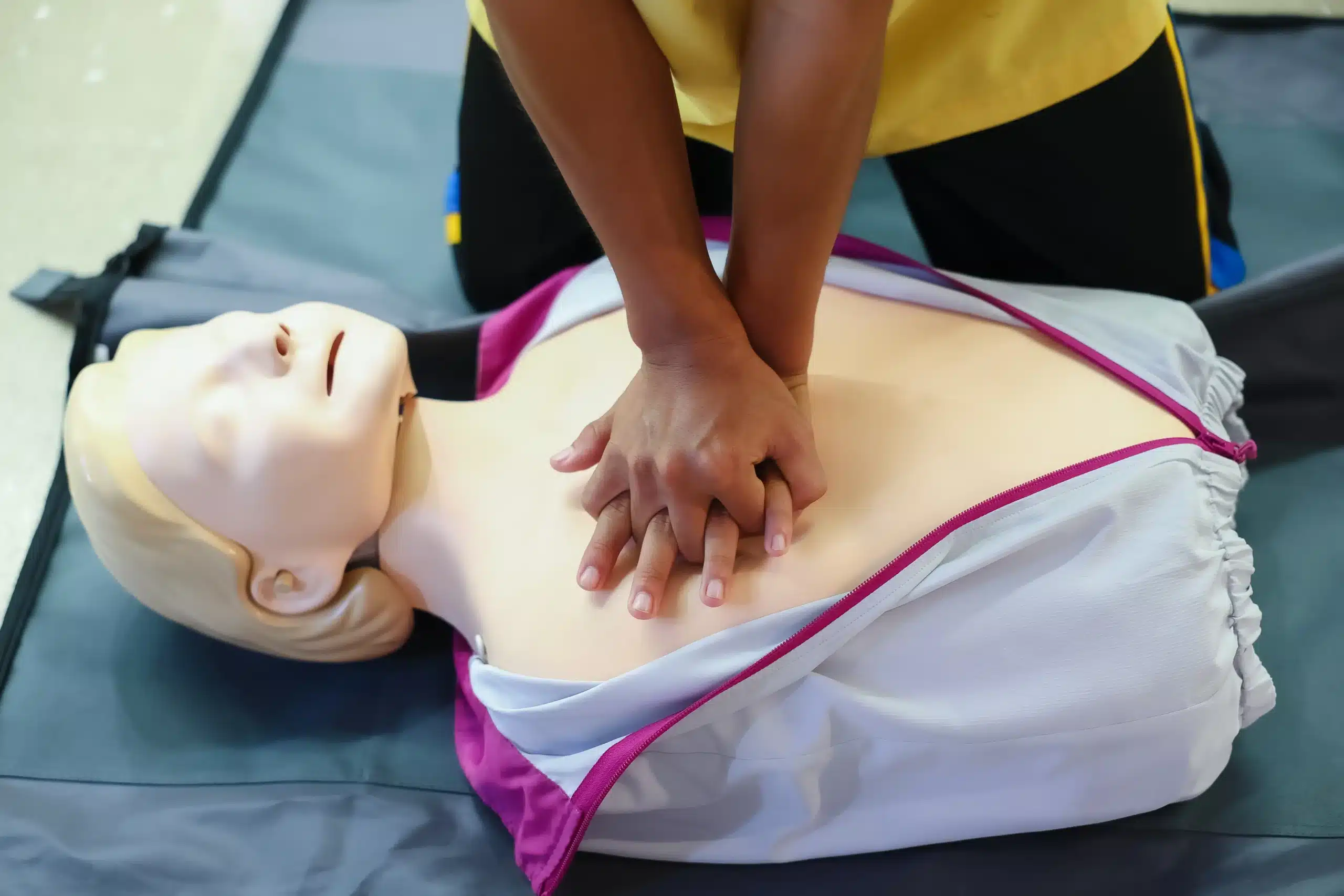Working in healthcare demands continuous learning and skill development, especially when it comes to managing life-threatening situations. ACLS certification is a cornerstone of advanced cardiovascular care, empowering healthcare providers to respond effectively during emergencies. This article serves as your comprehensive guide to ACLS, exploring its importance, the various acls courses in Sunnyvale available, and what to expect from the training process. We’ll also delve into course costs, renewal requirements, and the benefits of maintaining your ACLS certification.
Key Takeaways
- ACLS is essential for healthcare professionals: It provides the skills to manage cardiovascular emergencies, improving patient outcomes through effective treatment and clear communication during critical moments.
- Choose an AHA-certified course with experienced instructors: Hands-on training and realistic simulations are key to building confidence and proficiency in essential ACLS techniques.
- Maintain your ACLS skills: Regular renewal and continuing education ensure you stay up-to-date with the latest guidelines and best practices in cardiovascular care.
What is ACLS?
Advanced Cardiovascular Life Support (ACLS) is a set of clinical guidelines and protocols for healthcare professionals responding to cardiovascular emergencies. ACLS training prepares you to manage complex cardiac situations like cardiac arrest, stroke, and other life-threatening conditions. It’s a vital skill set for any healthcare provider responsible for emergency cardiovascular care. Our BLS course often complements ACLS training and is another important certification for healthcare providers.
ACLS isn’t just about memorizing steps; it’s about understanding the why behind them. The training covers critical topics such as airway management, recognizing heart rhythms, and administering medications during resuscitation. This comprehensive approach ensures you can act quickly and effectively under pressure. For healthcare professionals needing to refresh their resuscitation skills, we also offer the RQI program through the American Heart Association. Both ACLS and RQI are crucial for providing high-quality patient care.
Where to Find ACLS Courses in Sunnyvale
If you’re looking for ACLS certification in Sunnyvale, you have several good options. Here’s a rundown of providers to help you find the right fit:
Safety Training Seminars
Safety Training Seminars, a woman-owned business established in 1989, offers AHA-certified ACLS courses in Sunnyvale and throughout Northern California. With classes offered daily, they make it easy to work the training into your schedule. They also offer other certifications, including BLS, PALS, and First Aid.
California ACLS Training Institute
If online learning is more your style, the California ACLS Training Institute provides fully online ACLS certification and recertification. Their courses follow the latest AHA guidelines, and certifications are accepted nationally and internationally. PALS and BLS online courses are also available.
Bay Area CPR
Bay Area CPR offers a variety of AHA-certified CPR and first-aid courses in Sunnyvale, conveniently located near Palo Alto and Santa Clara. Along with ACLS, they offer BLS, PALS, NRP, and combined CPR/First Aid courses.
American Heart Association Training Centers
The American Heart Association offers ACLS courses in Sunnyvale, directly providing healthcare providers with the skills they need to manage cardiovascular emergencies. Taking a course from the source ensures you’re learning the most current information and techniques.
ACLS Course Formats and Types
Initial Certification
ACLS certification is essential for healthcare professionals responsible for cardiovascular emergencies. This certification equips you with the skills to respond effectively in critical situations, preparing you to save lives. Your initial ACLS course will cover core concepts like recognizing and managing cardiac arrest, implementing effective resuscitation techniques, and understanding post-resuscitation care. Successfully completing the course and passing the required exams earns you your initial ACLS provider card. For related training options, explore our BLS courses in San Jose, which often integrates with ACLS training.
Renewing Your Certification
Maintaining your ACLS certification through regular renewal courses is crucial for any healthcare professional dedicated to providing critical care. Recertification ensures you stay up-to-date with the latest ACLS guidelines and best practices, which change with ongoing research and advancements. Like the initial certification process, renewal involves coursework, skills practice, and assessments. For related renewal options, check out our American Heart Association BLS course.
Blended Learning
Many ACLS courses now offer blended learning formats, combining online learning with in-person skills sessions. This flexible approach allows you to complete the theoretical portion online at your own pace. You’ll then attend an in-person session to practice essential skills and demonstrate competency under the guidance of a certified instructor. This hands-on component is vital for mastering the practical application of ACLS protocols. Our RQI program also utilizes a blended learning approach.
In-Person vs. Online
Choosing between in-person and online ACLS courses depends on your learning style and schedule. In-person classes offer direct interaction with instructors and peers, providing immediate feedback and opportunities for collaborative learning. Online courses offer flexibility for those with busy schedules or limited access to in-person training. Consider which format best suits your needs and preferences. For those seeking other essential certifications, our EMSA-approved courses for childcare providers offer a blend of online and in-person options. We also offer a low price guarantee on our courses.
Course Length and Costs
How Long is Initial Certification?
The initial Advanced Cardiovascular Life Support (ACLS) certification typically takes about 14–16 hours to complete. This timeframe allows for in-depth instruction and plenty of hands-on practice. Some courses might be structured over a couple of days to make the training more manageable. Check out our BLS courses in San Jose for an example of our course schedule.
Time Needed for Renewal
If you’re already ACLS certified and need to renew your certification, the renewal course is shorter, usually around 5–6 hours. Renewal courses focus on refreshing your core knowledge and skills, ensuring you’re up-to-date on the latest guidelines. We also offer the American Heart Association RQI program for healthcare professionals seeking a flexible renewal option.
Pricing and Fees
ACLS course fees vary depending on the training center and location. Generally, you can expect to pay between $150 and $250 for initial certification and slightly less for renewal courses. Safety Training Seminars offers a low price guarantee, so you can feel confident you’re getting a competitive rate. Check our course schedule for current pricing. For those working in childcare, we also offer EMSA Health and Safety training, which covers important safety topics including lead poisoning prevention.
Discounts
We frequently offer discounts on our ACLS courses. Check our website or contact us directly to inquire about any current promotions that can help you save on your training. We’re committed to making high-quality ACLS training accessible and affordable.
Instructor Expertise and Course Quality
When your health is on the line, you want the best medical care possible. That’s why choosing a high-quality ACLS course with expert instructors is so important. It’s not just about checking a box; it’s about gaining the confidence and skills to handle real-life emergencies.
AHA Certification
Look for an ACLS course certified by the American Heart Association (AHA). This certification means the course follows the most current, evidence-based guidelines for emergency cardiovascular care. Our courses in San Jose adhere to these AHA standards, ensuring you receive relevant training. AHA certification is a mark of quality and reliability, giving you peace of mind knowing your training meets the highest standards. You can find more information about AHA ACLS classes in nearby Sunnyvale.
Instructor EMS Experience
Instructors with real-world EMS experience bring a valuable perspective to the classroom. They’ve faced the challenges of actual emergencies, and they can share those insights with you. This practical experience enriches the learning process, making the training more engaging and relevant. It helps bridge the gap between theory and practice, giving you a better understanding of how to apply your skills in a real crisis. Our instructors often share their experiences, providing context and practical tips. Learn more about the importance of instructor experience in ACLS training.
Why Qualified Instructors Matter
Qualified instructors are essential for effective ACLS training. They guide you through complex concepts, answer your questions, and provide personalized feedback. Hands-on practice is a critical part of ACLS training, and a skilled instructor can help you refine your technique and build confidence. They create a supportive learning environment where you can practice your skills without pressure, ask questions, and receive immediate feedback. This interactive approach reinforces learning and helps you develop the muscle memory needed to respond effectively in a crisis. The expertise of instructors directly impacts the quality of your training. At Safety Training Seminars, we prioritize instructor quality to ensure you receive the best possible training experience.
Your ACLS Course Experience
Your ACLS course experience blends interactive learning and practical application, preparing you for real-world emergencies. Here’s what you can expect:
Course Content
ACLS courses, especially those offered by the American Heart Association in Sunnyvale and nearby cities like San Jose and Santa Clara, are crucial for healthcare providers. These courses cover essential algorithms and protocols for managing cardiac arrest, stroke, and other acute cardiovascular conditions. You’ll learn effective team dynamics and communication strategies vital for successful resuscitation. Our BLS courses in San Jose often complement ACLS training.
Hands-on Practice
Hands-on practice is central to ACLS training. You’ll participate in simulated scenarios, applying learned algorithms and techniques. This immersive approach helps develop muscle memory and critical thinking skills under pressure. Instructors provide immediate feedback, helping you refine your skills and build confidence. This practical experience translates classroom knowledge into real-world competence. Our RQI program emphasizes real-time feedback and skills maintenance.
Assessment and Certification
Your ACLS course concludes with an assessment evaluating your understanding and proficiency through written exams and practical simulations. Successful completion demonstrates your ability to manage cardiovascular emergencies. Holding a current ACLS certification, along with a healthcare provider CPR certification, validates your skills and knowledge, essential for quality patient care. Our low price guarantee makes maintaining these certifications easier. We also offer EMSA-approved courses for California childcare providers, which often align with ACLS principles.
Get Ready for Your ACLS Course
Preparing for your ACLS course makes for a smoother learning experience. Knowing what to expect and how to prepare—both mentally and physically—can make a real difference.
Materials and Pre-Course Prep
ACLS courses, especially those offered by the American Heart Association in Sunnyvale and nearby cities like San Jose, are crucial for healthcare providers. Before your course begins, gather the required materials. This typically includes an ACLS Provider Manual, essential for studying the algorithms and protocols. Many courses also recommend a current BLS Provider certification, as the BLS curriculum forms a foundation for ACLS. You can find BLS courses in San Jose and surrounding areas through providers like Safety Training Seminars. Familiarizing yourself with the manual before class will give you a head start.
Physical and Mental Readiness
ACLS training can be demanding, both physically and mentally. You’ll be participating in hands-on practice and simulations of real-life emergencies. Being well-rested and having a solid understanding of the psychological challenges associated with medical emergencies can help you manage stress and focus on learning. Remember, these scenarios, while realistic, are designed for learning. Embrace the opportunity to practice your skills and ask questions. Hands-on ACLS classes provide immediate feedback from instructors, allowing you to refine your techniques and build confidence.
Common Challenges
Many students encounter similar challenges during ACLS training. One common hurdle is mastering the complex algorithms and treatment protocols. Reviewing the ACLS guidelines beforehand can significantly reduce this difficulty. Another challenge is managing the pressure during simulated emergency scenarios. Remember that these simulations offer a safe space to learn and make mistakes. Don’t hesitate to ask for clarification or support from your instructor. Overcoming these common challenges will make your ACLS experience more productive and rewarding.
Keep Your ACLS Certification Current
Staying up-to-date with your Advanced Cardiovascular Life Support (ACLS) skills is crucial for any healthcare provider. Refreshing your knowledge and skills ensures you’re prepared to handle cardiovascular emergencies effectively. This section covers renewal requirements and the importance of continuing education.
Renewal Requirements
ACLS certification typically lasts for two years. Before your certification expires, you’ll need to complete a renewal course covering the latest guidelines and best practices from the American Heart Association. This keeps your skills sharp and your knowledge current. Check with your certifying body or employer for specific renewal deadlines and requirements. Don’t let your certification lapse—staying current demonstrates your commitment to providing high-quality patient care.
Continuing Education
Even after renewing your ACLS certification, continuing education is essential. Medicine is a constantly evolving field, with new research and techniques emerging regularly. Engaging in continuing education through workshops, online resources, and conferences helps you stay informed about these advancements. This ongoing learning ensures you’re always equipped to provide the best possible care for your patients during cardiovascular emergencies. Consider exploring resources like our RQI program for ongoing training options. Staying informed and practicing your skills regularly are key to maintaining proficiency in ACLS.
Why Healthcare Professionals Need ACLS
As a healthcare provider, you’re on the front lines of patient care. Having Advanced Cardiovascular Life Support (ACLS) certification isn’t just a credential—it’s a critical skill set that empowers you to handle life-threatening cardiovascular emergencies effectively. Whether you’re a physician, nurse, paramedic, or respiratory therapist, ACLS training provides the knowledge and practical skills to make a real difference.
Better Patient Outcomes
ACLS training significantly improves a healthcare professional’s ability to respond to complex emergencies. It equips you with the tools to quickly assess, stabilize, and manage patients experiencing cardiac arrest, stroke, or other acute cardiovascular events. This rapid response and effective management can significantly improve a patient’s chances of survival and recovery. Improving patient outcomes is a direct result of comprehensive ACLS training.
Teamwork and Communication
Effective teamwork and communication are essential in high-pressure medical situations. Hands-on ACLS courses emphasize team-based training, fostering clear communication and collaboration among healthcare providers. Learning to work together seamlessly during simulated emergencies translates to better coordination and efficiency in real-life crises. This can be the difference between a positive and a negative outcome for your patients. Effective communication is especially vital during ACLS evaluations, ensuring everyone on the team understands the situation.
Career Advancement
In a competitive healthcare landscape, ACLS certification is often a requirement for many roles, especially those involving direct patient care. Earning ACLS certification demonstrates your commitment to providing high-quality care and can create new opportunities. It can also increase your earning potential and make you a more desirable candidate for promotions. Regularly renewing your ACLS certification through continuing education shows your dedication to staying at the forefront of your field.
Find the Right ACLS Course in Sunnyvale
Finding the right ACLS course in Sunnyvale can feel overwhelming with so many options. But by focusing on a few key factors, you can choose a program that sets you up for success.
What to Look For
First, ensure any ACLS class you consider is recognized and accredited by a reputable organization like the American Heart Association. This guarantees the training meets industry standards and effectively prepares you for real-world emergencies. Look for programs that emphasize hands-on practice and offer plenty of opportunities to apply your skills in simulated scenarios.
Compare Providers
Next, take the time to compare different training providers in Sunnyvale. Safety Training Seminars offers a range of AHA-certified courses, including CPR, BLS, ACLS, and PALS, plus First Aid and EMSA certifications. If online learning better suits your schedule, consider the California ACLS Training Institute, which provides online ACLS, PALS, and BLS certification and renewal courses. Consider what’s important to you—in-person instruction, online convenience, or a blended approach—and choose a provider that aligns with your learning style and budget. Check out Bay Area CPR for their low price guarantee.
Student Reviews
Finally, tap into the experiences of others. Reading student reviews offers valuable insights into the quality of different courses and instructors. Look for comments about the instructors’ expertise, the hands-on training components, and how well the course prepared students to feel confident in their ACLS skills. These firsthand accounts can give you a clearer picture of what to expect and help you make an informed decision.
Related Articles
- ACLS Certification Classes San Jose | AHA Certification Course
- How to Find an ACLS Course in San Jose – San Jose CPR Classes
- CPR Certification San Jose: Your Complete Guide – San Jose CPR Classes
- Safety Training Seminars San Jose: A Complete Guide – San Jose CPR Classes
- American Heart Association Course Preparation | San Jose CPR
Frequently Asked Questions
What exactly does ACLS training cover? ACLS training provides healthcare professionals with the knowledge and skills to manage a range of cardiovascular emergencies, from basic life support to advanced interventions. It covers topics like recognizing and treating heart rhythms, airway management, and effective team communication during resuscitation. It builds upon the foundation of basic life support (BLS) and goes further in depth on advanced techniques.
How do I choose between online and in-person ACLS training? Think about your learning style and schedule. Online courses offer flexibility, allowing you to learn at your own pace and from anywhere. In-person classes provide direct interaction with instructors and peers, creating a more collaborative learning environment. Both formats typically include a hands-on skills assessment component, ensuring you can apply what you’ve learned.
Does ACLS certification expire, and how do I renew it? Yes, ACLS certification typically expires after two years. To renew, you’ll need to complete a recertification course that covers updated guidelines and reinforces essential skills. This ensures you stay current with the latest advancements in cardiovascular care.
Why is ACLS certification important for my healthcare career? ACLS certification is a valuable asset for healthcare professionals. It demonstrates your commitment to providing high-quality patient care and can open doors to career advancement. Many healthcare facilities require ACLS certification for positions involving direct patient care, and it can enhance your job prospects and earning potential.
What if I can’t afford the cost of ACLS training? Check with various training providers for potential discounts or financing options. Some employers may also offer assistance with training costs. It’s worth exploring these possibilities to make the training more accessible.


